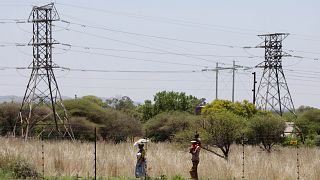South Africa
South Africa plans a new “fat tax” on sugary drinks to combat obesity.
Ranked as one of the most obese nations on the continent, South Africa is joining a growing list of countries around the world, trying to put a cap on fizzy drinks.
But sweet toothed consumers are unlikely to give up on the drinks .
“I don’t think people will buy less because if someone really likes something someone will buy something that that person likes, so I don’t think it’s a good idea to increase the prices,” said Fabian Ridly a consumer.
South Africans sweet on sugary drinks despite fat tax: JOHANNESBURG: South Africa plans a new “fat tax” on sug… https://t.co/pdwGlBcEgz
— South Africa Links (@dlSouthAfrican) April 17, 2016
The levy which was announced by Finance Minister Pravin Gordhan in his budget in February, will come into effect in April next year, and manufacturers say the tax could negatively impact business.
“There definitely will be job losses and certainly the small business owners are going to be extremely impacted,” said Mapule Ncanywa, the Executive Director of the Beverage Association of South Africa.
According to the World Health Organization, childhood obesity has become endemic in the developing world, including Africa.
The number of overweight or obese children under five nearly doubled from 1990 to 2014, from 5.4 million to 10.3 million.
Health experts in South Africa say that about 5 percent of South Africans are in the “morbidly obese category” that is 45 kilogrammes overweight.
Experts argue that the new tax is aimed not only at saving people from their own unhealthy appetites but at offsetting the economic costs of diseases related to obesity.
AFP













Go to video
White House confirms Trump diagnosed with common vascular condition
Go to video
Semenya ruling shakes foundations of gender rules in sport
01:53
SMES under pressure as business confidence hits four-year low in South Africa
01:49
BRICS summit ends on health issues and role of global south countries